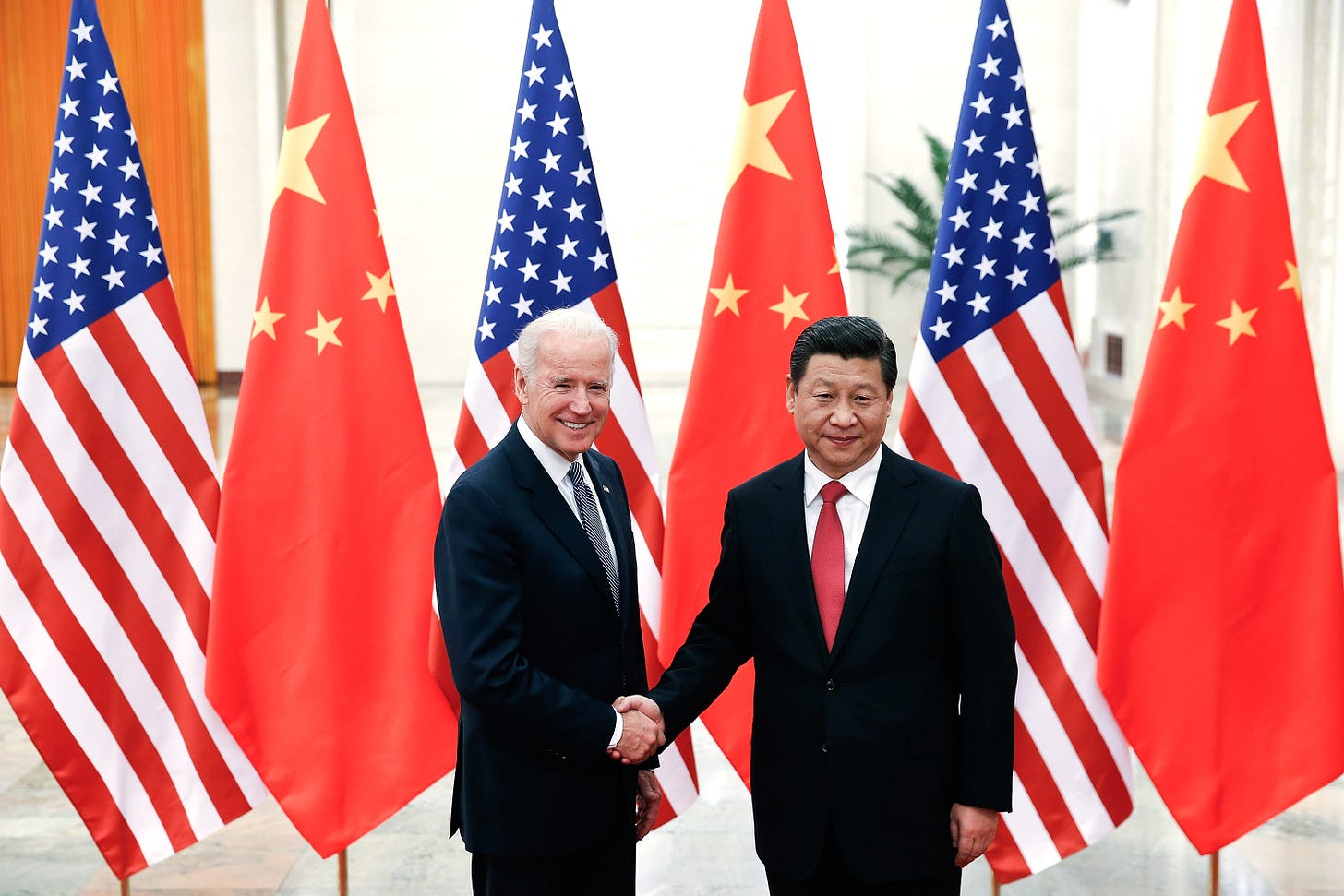A China Strategy Blueprint
How a potential Biden administration might hold China accountable for its role in the coronavirus pandemic.

China should pay a price for its role in the global spread of the coronavirus pandemic. Of course, the price it will pay will depend on who wins the presidential race in November. Donald Trump’s chaotic administration of the executive branch, his inexperienced national security team, and his demagogic preference for stoking the passions of the people instead of appealing to their reason make it hard to believe that he could formulate and implement any wise strategy toward China. If Joe Biden wins, however, there is hope.
First, China should face economic pressure. The Trans-Pacific Partnership (TPP) was designed to do exactly that, but the Trump administration withdrew the United States from the TPP in January 2017. Under the next president, the United States should rejoin the TPP (or the successor treaty that was created after the U.S. withdrawal) and pursue Senate ratification.
Similarly, the United States should resume negotiations on the Transatlantic Trade and Investment Partnership. The United States and the European Union ended the negotiations in a stalemate in 2019. But this agreement is key to diminishing China’s economic influence in Europe.
Next, something that has historically been helpful in bringing the United States and its allies close together is shared projects, like the International Space Station or various military-technology endeavors. Shared projects strengthen ties, foster interreliance, and create distance between the participants and their enemies. One ideal shared project is 5G network technology. The next administration should persuade allies, including the United Kingdom, not to sign 5G contracts with Huawei. The tools of persuasion could include government subsidies—which, of course, are not good for the market but are sometimes necessary for national security. The argument that “it is bad for your own security in the long term” has so far not worked well in deterring some allies from signing up with Huawei. The best way to prevent them from joining the Chinese network is by providing at least as good an alternative ourselves and, even better, giving them a stock in it. (There are other technological projects, like artificial intelligence research, that might also be the focus of ambitious new international cooperative projects.)
The United States needs also to reinvest in international organizations and foreign aid. In the present crisis, the United States and Europe have watched, appalled, as the World Health Organization (WHO) has carried water for China. But the truth is that the United States has been decreasing its contributions to the WHO and other international organizations, while China has been increasing its contributions. And the United States also needs more competent representation in the WHO and other organizations—diplomats who can get America-friendly figures confirmed at the various subsidiary organizations of the United Nations, something the current administration has been failing at.
Speaking of its diplomats, the United States needs to make sure it has real ambassadors installed in Europe and Asia, and not just chargés d’affaires, as in several critical countries (e.g., Japan, Ukraine, Pakistan, and Qatar). This will be an important part of restoring alliances. And a greater balance of our ambassadors, especially to key countries and international organizations, should be career diplomats instead of wealthy political cronies. This is not true right now, as the U.S. ambassadors to the United Kingdom, France, Italy, and many other countries have no prior diplomatic experience.
Next, the United States should do what it can to blunt China’s buying of friends in Africa and Latin America. Many of those countries’ leaders do not like the increasing Chinese influence, but they talk about how they have to take the yuan because there is no dollar. The United States should increase economic aid to developing countries in Africa and the Americas.
The United States must also do more to prepare for—and be seen preparing for—a potential military conflict with China. The Marine Corps is taking major steps in this direction, and the other services should, too. In its 2018 report, the bipartisan commission on National Defense Strategy found that the U.S. military is under-resourced to contain a war against China (or Russia) in their own neighborhoods. This might sound ridiculous, given the military spending gaps between the United States and its competitors. But around 40 percent of the U.S. military spending goes into wages and benefits, even though our services are still struggling to meet their recruitment goals. A major reassessment of military budget appropriations that reflects the future and mechanization of warfare is long overdue.
Finally, the United States must resume its past criticism of China’s human rights violations—something the Trump administration has largely downplayed—and support dissidents inside and outside China. The U.S. Agency for Global Media should also increase its engagement of Chinese citizens; this will help delegitimize the Chinese Communist Party at home and put it on a diplomatic defensive abroad.
The coronavirus pandemic has reminded the world about the threat that China poses to peace. To borrow a phrase, we should not let this crisis go to waste.

